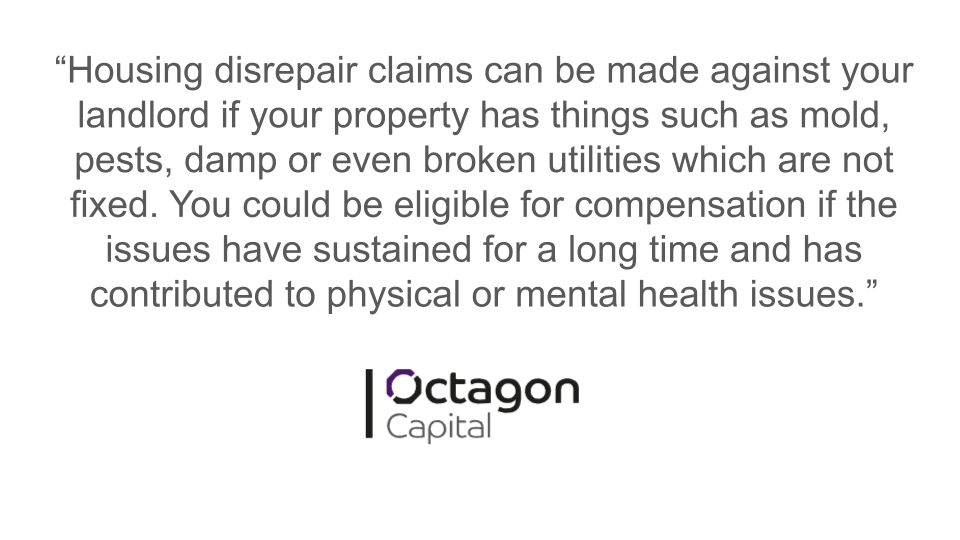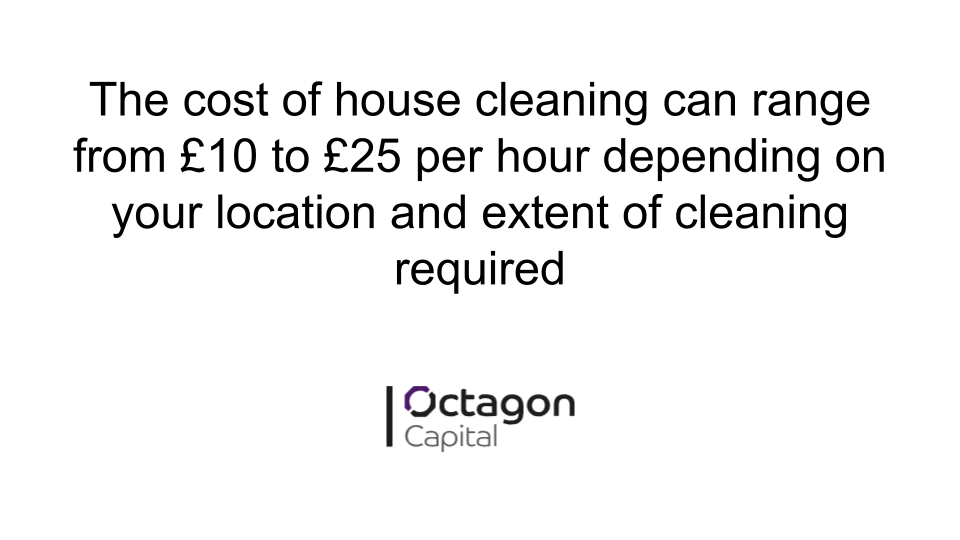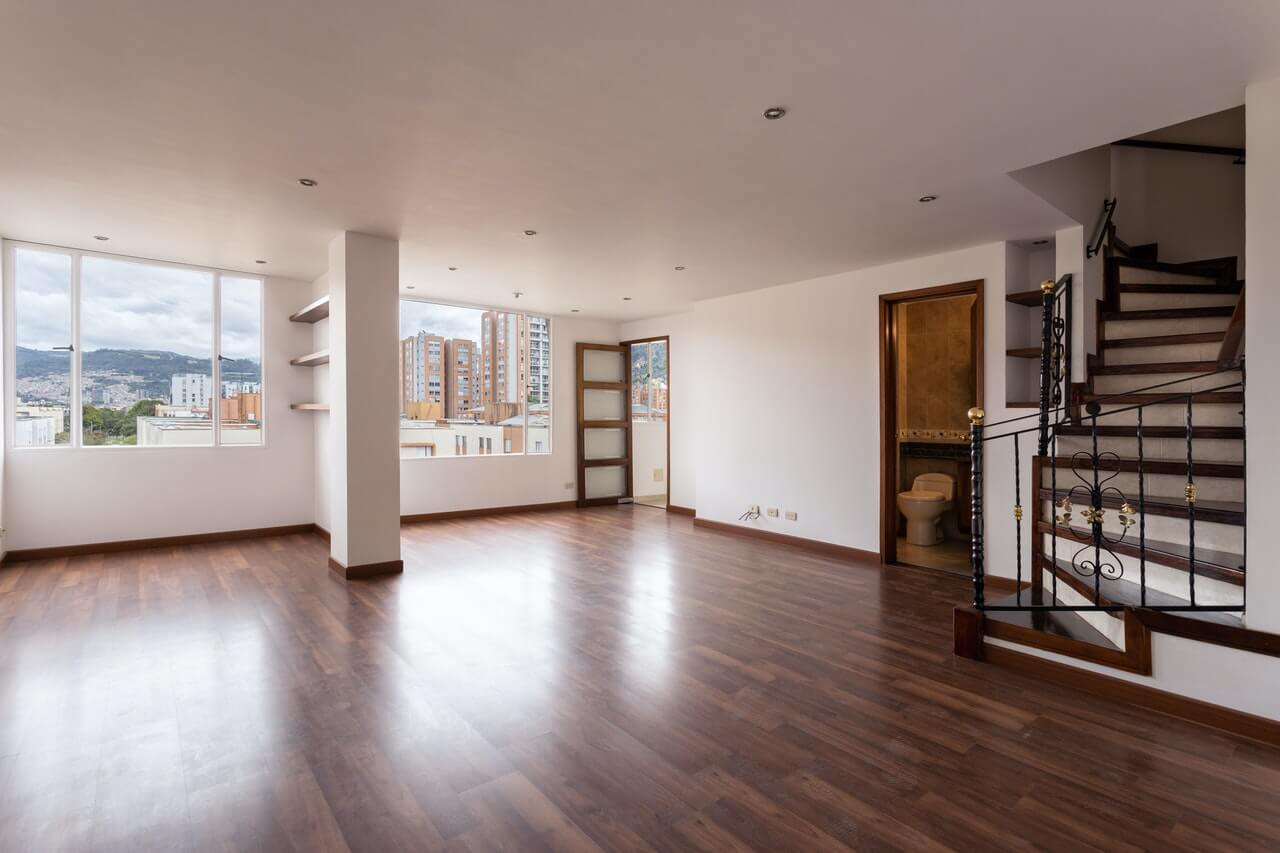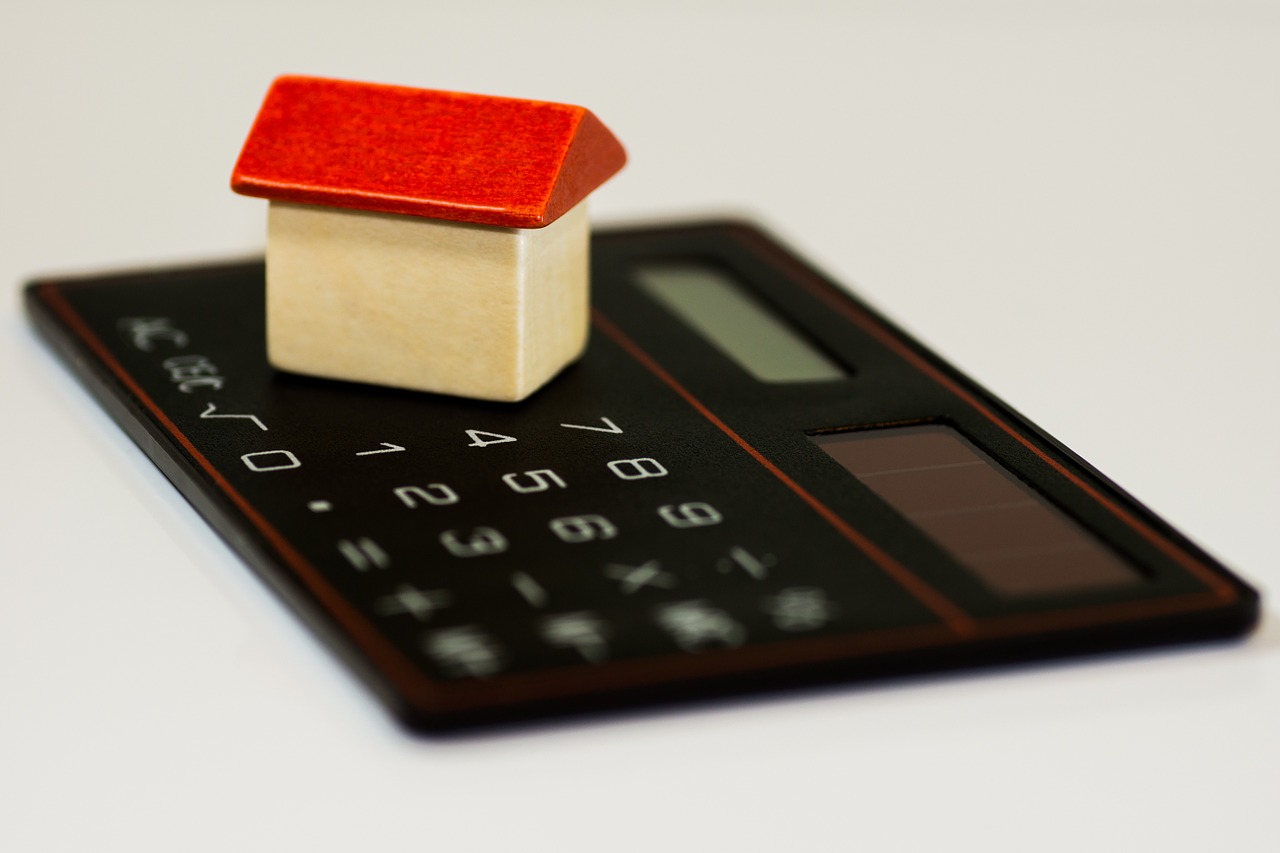What is a Housing Disrepair Claim?
Housing disrepair claims can be made against your landlord if any aspect of the property or building that you live in has not been fixed or upgraded and has caused detrimental issues to your health or quality of live. The process essentially involves seeking compensation from your landlord or property owner either through the court or via legal action.
When living in rent accommodation, the tenant has a right for the property to be in a certain condition and maintain a certain level of standard - and it is the landlord's responsibility to maintain this, unless there are viable e
Housing disrepair is defined as the ‘poor condition of a building or structure due to neglect’. This means that work needs to be carried out in order to make the property safe to live in, and can include problems such as lack of heating, mould, and broken toilets. If you rent and your landlord isn’t providing you with safe accommodation, you could be eligible to claim for housing disrepair compensation.
There are 76,814 “non-decent” properties in the UK, according to the English Housing Survey, and 1 in 7 Council Homes do not meet the National Standard. With the current cost of living crisis, more and more rentals are slipping under the minimum standards of safety. If your landlord is refusing to safely maintain your home, you could be entitled to claim compensation.
What is Housing Disrepair?
Housing Disrepair is when your landlord does not carry out repairs on your rented property, resulting in your home being of an unsafe living standard. Legally, by paying rent, tenants are entitled to a clean and safe property to live in.
The definition of disrepair is broad, and it covers problems such as pests, dampness, mould, lack of heating, and unsafe floors and stairs. Any type of rental property is eligible, including flats, houses, council homes, and even Airbnb properties.
Tenants renting homes in a state of disrepair may face ill consequences to their lives. For example, a house infested with mould can cause health problems, as well as damage to a tenant's personal belongings such as clothes and bedding. It could even leave rooms unusable.
If your landlord is refusing to carry out necessary repairs, you can claim for Housing Disrepair. A lot of the time, court proceedings are not even required, as this process can put pressure on landlords to act quickly to do the right thing.

Am I eligible to claim for Housing Disrepair?
You could be eligible to claim if your property hasn’t been safely maintained by your landlord and fall under any of these categories::
- You rent a council house
- You rent a housing association property
- You are in private rented accommodation
Living in unsafe properties can take a toll on tenants’ physical and mental health, which is a viable reason to claim for Housing Disrepair. This can include personal injury, medical bills, sickness from mould, or even depression.
If you believe you fall under any of these categories, you could be eligible to claim for Housing Disrepair. You can also check here to see if you are eligible by filling out a short form.
How does it work?
You are legally entitled to live in a safe home. If you have already reported safety issues to your landlord which they have failed to fix, you could claim Housing Disrepair and force them to complete the work and potentially even win yourself financial compensation.
Before filing a claim, you must notify your landlord of the problem and then wait 21 days. This gives landlords time to rectify the problem on their own. Make sure to do this in writing (such as a text message or an e-mail) so that you have a record of it.
You must also collect evidence of disrepair. This includes photos, medical bills, professional reports from surveyors, and the aforementioned request to your landlord. Any proof you can collect might be helpful.
If your landlord has not started the process of fixing the property’s safety issues within the time period, you can claim for Housing Disrepair. A typical claim can take around 9 to 12 months, but larger or more complex claims can take up to a year, or a year and a half. The average amount of money rewarded is £1,200.
What are the benefits of using a mortgage advisor when moving house?
Summary: An informative and comprehensive guide that informs readers on the many reasons why it's beneficial to use a mortgage advisor when moving house, including to save stress and ensure that the process is completed correctly. Also includes statistics about mortgages in the UK.
Whether it's a first-time property or you're just moving from one property to another, moving house is an important milestone that can carry a lot of stress. That's why many people opt to employ the services of a local mortgage advisor. But why do so? Here are just a few of the various benefits of hiring a mortgage advisor when buying a property:
Saves you money
Mortgage advisors have an extensive network of contacts including real estate agencies, solicitors and more. This means that they can scour for the latest and best properties within your budget without resorting to going above budget. The best mortgage advisors not only find properties at low prices, but they also take into consideration all of the additional fees and find great deals so you can get as much as possible for your money.
Saves you time
Mortgage advisors are skilled at what they do. Successful mortgage advisors are backed by years of experience, which means they're incredibly proficient at their job. While the average house hunting period takes place for anywhere between 3 to 6 weeks, a mortgage advisor can help to lower this stage by finding properties through their network quickly and efficiently. Their specialist tools can take all of your requirements and circumstances into consideration to filter properties swiftly.
You can read more about the house hunting stage of buying a property here.
Saves you stress
Mortgage advisors have helped hundreds of clients buy houses over the years. They understand how stressful the house-buying process is and are on hand to help make the process as easy as possible for you. Hiring a mortgage advisor means the work that would normally have to be done completely by you can now be split between yourself and a professional backed by formal training and practical experience. They can also take care of the paperwork so there's no risk of incorrect applications.
Other benefits of mortgage advisors
Alongside the above benefits, mortgage advisors also:
- Provide generalised financial advice
- Know the best lenders in your local area
- Chase up your application as deadlines approach
Whether you're buying a house with chain or no-chain circumstances, mortgage advisors can simplify and streamline the process. It's an extra cost to consider but it can be well worth the money due to the many benefits they offer.
Contact Octagon Capital now
If you need assistance with equity release on an existing property, get in touch with our team here at Octagon Capital today. We can help you release between 20-60% of your property's value to receive money in a single lump sum. We also offer services relating to development finance and can help you find a viable solution if you need to take out a bridging loan.
How Much Does a Professional House Clean Cost?
Professional house cleaning will range between £10-£60 per hour. The reason for such a broad range is that the cost will depend on the specific type of house cleaning that is required.
Different home cleaning tasks will have varying levels of difficulty. Simple weekly cleans to keep your house neat and tidy will cost between £10-25 per hour. For an average 3 bedroom house in the UK for a regular light clean you could expect to pay £150-250.
Cleaning jobs that are more difficult , requiring more skill , specialist cleaning products and machinery will cost significantly more. Carpet cleaning for example costs £25-60 per hour given specialist chemicals and equipment are required. Deep cleaning is a much more thorough service than a routine clean and will also cost more. Given the difficulty of deep cleaning , such as cleaning an oven appliance , it can cost as much as £40-60 per hour.
End of tenancy cleans are particularly meticulous and can cost £50-100 per hour. These cleans require far more work given they are being returned to a near perfect state of condition for new inbound tenants. The same is true for after builders cleans which are cleans post renovation work. The clean of these homes will require more extensive work such as cleaning rubble out of the carpets and will cost £30 per hour.
House cleaning costs at a glance:
- £10 to £25 per hour (based on London prices)
- £150 - £250 full house clean of 3 bedroom house (based on London)
- £25 to £60 per hour for carpet cleaning
- £40 to £60 for deep cleaning
- £50 to £100 for end of tenancy cleaning
Source: Serna FM
What factors impact the price of a professional house clean?
There are many factors that impact the price of a house clean , varying from the difficulty of the task to the time required to complete the task. Here’s a breakdown of the main factors that impact the cost of cleaning your home:
- Location: price will vary on location. Expect to pay more in areas with higher living costs. This is usually the case in larger cities, particularly London
- Difficulty: the more challenging and unappealing a task the more it’ll cost. Oven cleaning and window cleaning represent good examples here.
- Type of cleaning: price will depend on the tools , expertise, training and intensity of cleaning required to fulfil the task. Light dusting will cost considerably less than external window cleaning . The most expensive cleaning jobs are those that require industrial equipment to aptly complete the job
- Pets or kids: kids and pets will increase the level of dirt, fur, stains etc. in your homes. Consequently it will take longer to clean these homes which results in higher costs
- Size of the area: the larger the area is, the more it will cost to clean. The cleaner will need to assess the square footage of the building to correctly quote their prices.More experienced companies will do a site evaluation beforehand and give indicative pricing.
- Time required: this will be a function of the size of the area that is required to be cleaned as well as the difficulty of the task. The more time it takes the higher costs will be.
- Size & number of windows: if window cleaning is also required the number of windows will impact pricing. Larger windows and those that are harder to reach take longer to clean and will cost more. The more glass there is to clean, the more it’ll cost.
- Experience: More experienced cleaners and cleaning agencies will charge more. Typically they will be more skilled and have access to better equipment and cleaning supplies.
- Frequency: the more often you require a cleaner, the more the costs will stack. However, reduced rates can often be negotiated when regular cleaners are required.

What is involved in a professional house clean?
Tasks involved in a professional house clean will depend on the type of cleaning you require. For a routine general house clean this will involve; dusting, hoovering, wiping down surfaces, cleaning toilets and tidying.
For a more in depth clean such as an end of tenancy clean more extensive services will be required. This could include; carpet cleaning, oven cleaning, cleaning out of fridges and freezers, cleaning windows and the cleaning of the inside of shelves and cupboards.
After renovations , a thorough clean of the home is required before handover. After builders cleans often includes removing construction debris and removing soil and grit from carpets amongst other standard deep cleaning services
What is involved in the clean will depend on specifically what you have requested. Some specialist cleaning companies can come and clean just your carpets or just your windows. Make sure to explain in detail specifically what cleaning services you require when speaking to a potential cleaning company. What is included as a standard will vary from company to company so make sure to enquire what is involved in their standard house clean. We’d even recommend creating a task list for the cleaner to ensure the exact cleaning you require is completed.
Adding Value To Your Home With a Kitchen Renovation
The kitchen is the heart of the home. Generally speaking, it’s where we spend a large part of the day. In 2017, 40% of kitchen remodelers did so because they were financially ready. It’s not cheap. However, it will hopefully add value to the home, and your efforts will be worth it.
Why does the kitchen matter?
69% of home buyers consider the kitchen one of the most critical factors. A kitchen upgrade will add value to your property and smooth the house selling process. Even if you have no plans to sell, a well-designed, updated kitchen will add charm to your home.
Designing your kitchen yourself allows you to plan it for optimum convenience. Whether your old kitchen was too small or had an impractical layout, a new kitchen will improve your lifestyle.
How much does a kitchen remodel cost?
Depending on how extensive the renovation and the new style, remodeling your kitchen could cost anywhere between £5,000 to £100,000 or $7,000 and $140,000. Basic remodelling might cost more in the region of £28,000 or $40,000. To cut costs, consider opting for more affordable materials, skip the technology extras, and do as much of it yourself as possible.

Could brightly coloured kitchens be easier to sell?
5 tips to add value to your kitchen
Investing time and money could add plenty of value to your kitchen. As well as making it a more excellent place to live, it will help your property fly off the market if you choose to sell.
1. Add an island
Adding an island will instantly increase value. Kitchen islands became popular in the early 2000s, and they’re continuing to prove their use. They provide an extra work surface and provide a storage boost. Ideally, you need around a meter on either side of the island to allow people to move around. The size of your island depends on the proportions of the kitchen.
2. Improve storage
Sufficient storage is one of the most vital aspects of a kitchen. Maximizing storage space by installing cupboards from floor to ceiling if you're remodeling. Also, place units above the work surface as well as beneath.
3. Upgrade your worktop
Kitchen work surfaces suffer a lot of wear and tear. Therefore, it's worth spending time and money upgrading your work surfaces to a hard-wearing surface, such as laminate, granite, quartz, or epoxy flooring. It's also one of the first things visitors see when entering your kitchen.
4. Choose colour wisely
When you renovate your kitchen, think carefully about your colour scheme. While you might like bright colours, it might put off potential buyers. Neutral colours, such as white, grey, and beige, are subtle and unlikely to date. If you want to add a splash of colour, purchase bright appliances or stall covers that are easy and inexpensive to replace.
5. Adjust the lighting scheme
Light opens up a room, making it appear more spacious and welcoming. Choosing good lighting and complimentary light fixtures will help bring the whole room together. Consider under-unit lighting to light up your workspace. Think carefully about where you install pendants. Once the light fixture is in place, it’s expensive to move.
What about an outdoor kitchen?
Outdoor kitchens are excellent ways to add value to your home. There’s nothing anyone likes better than sitting in the backyard with a cookout in the summer months. With an outdoor kitchen, you’ll put your house value in line with some of the most in-demand properties on the market.
An outdoor kitchen is an extensive renovation and could cost a lot. For instance, you will need to sort out outdoor plumbing and gas fixtures.
Summing up
In most instances, you can rely on updating your kitchen to improve your home's value. The majority of buyers are willing to pay higher prices for quality finishes. Considering the kitchen is one of the home's most important spaces, it's one of the most vital upgrades to improve its value.
While it might be an expensive renovation, the return is well worth it. Moreover, you can easily remodel your kitchen on a budget. An upgraded kitchen will help your property stand out to prospective buyers, helping you sell at a higher price more quickly. Even if you don’t plan to sell, renovations will improve your quality of life.
What Options are There if you Need Money Fast for Your Business?
A number of businesses can find themselves in a position where they need money fast. Whether it is to pay for bills, rent, staff or clear any outstanding debts, businesses of all sizes can sometimes need a quick cash injection to help see them through a difficult period. In fact, cash flow issues is one of the most common reasons for startups to fail or for businesses to go under. Below, we list a number of effective ways for businesses to get money fast:
- Borrow money from family and friends
- Bank loans
- Bridging finance
- Borrowing against a vehicle
- Overdrafts
- Crowdfunding
- Venture capital and business angels
Borrow money from friends and family
One of the easiest ways to fund your business in the early stages is to ask any willing friends or family members to invest in your business. This should only ever be a short-term option and is usually used in the initial stages when a business needs to prove that its concept has potential and can then go on to seek further funding.
Borrowing money from friends and family can be a much quicker way of building funds than going through an official loan approval process and you negate the need for eligibility criteria and other entry barriers. Not only that, you will likely have far more flexible terms when it comes to interest rates and length of loan term. Depending on the terms you agree with your friends and family, the interest could also work out to be a good investment for them in the long term. However, if anything goes wrong you risk damaging your personal relationships.
Bank loans
Traditional bank loans have a lot of merit as a way of funding money for businesses looking to get started. There is a wealth of different loans on the market which could fund your business and match your financial needs. If you already have a business bank account open, this could be a good starting point to approach your bank and present your business proposal in order to be approved for a business loan. Typically, banks will only offer loans to those with a good credit score and credit history.
If you choose to take out a bank loan for your business, you can usually shop around for the msot competitive rates and choose from a range of different loan products to make sure that you are getting the most suitable loan for your needs. Generally speaking, teh better your credit score, the better your chances of approval and the more competitive interest rates you will be offered. Also, there will be a clear repayment plan. One of the best things about a bank loan is that you will not have to revoke any control of your business.
However, if you are looking for quick funds, bank loans may not be the best option for you. Seeking finance from banks can often be very time-consuming and requires a lot of paperwork and back and forth.
Bridging finance
Bridging finance is what we specialist in here at Octagon Capital. Essentially you can raise money for a tight deadline, using a property as security. With a bridging loan, it is designed to 'bridge the gap' between the purchase and sale of something, so it can be useful if you know that you are going to be selling your premises or completing on a big deal and just need some cash quickly to help move things along.
You will need a valuable asset as security - so whilst this is usually property such as offices, premises, hotels or agricultural land, it could also be vehicles. In fact, a German airline Condor, borrowed a huge sum of money through bridging finance by securing it against their airlines.

Bridging is used to bridge the gap between the purchase and sale of something. It is usually available within a matter of weeks and is often paid back after just a few months.
Borrowing against a vehicle
Borrowing against vehicles is a very quick and popular way to raise money fast. Known as secured loans against your car, bike or van, this could be a general secured loan for your business or it could be an individual logbook loan.
It is not uncommon for business founders to get a logbook loan against their own vehicle and then provide a director's loan to the business. In this instance, you temporarily handover the logbook of your vehicle to the lender who can give you up to 50% of the car's value upfront, with pretty low rates too. The key thing to remember with secured loans is that if you struggle to repay, your vehicle can be repossessed by the lender to cover their losses.
Overdrafts
Overdrafts from your current account or credit card are there for a reason, to help in the event of an emergency.
With some personal or business credit cards, you will have an authorised or unauthorised facility so that you can borrow an extra few hundred or thousand pounds if you need it.
However, it is important to note that overdrafts, especially when unauthorised can be some of the most expensive form of borrowing on the planet and you should try use this for as little time as possible. Find out more information about overdraft charges here.
Crowdfunding
Crowdfunding has become a buzzword in the business world when it comes to raising funds. There are different platforms available, all of which involve raising money from multiple individual investors (including regular people who may be interested in your business proposal). This option is probably only suitable for businesses who are offering a proposal which appeals to multiple people and offers a key solution or USP. It will need to be able to attract a lot of attention in a short period of time in order to rack up the funds in a timely manner so may not be the fastest option available.
Venture capitalists and business angels
If you have a business proposal with real potential, you might be able to approach venture capitalists or business angels directly for funding.
Business angels are individuals who have personal wealth and seek investment opportunities. They will fund your company if they see potential and, in exchange, they will want a share of your business. This can be a great way of receiving large amounts of money relatively quickly as well as receiving professional guidance. However, you will need to relinquish some control over your business.
For the chance to receive even more investment, you could approach a venture capitalist. They work similarly to angel investors in that they provide money in exchange for equity in the business. Their goal tends to be for the business to grow quickly so that they can benefit from a return on their investment within a short period of time.
The only issue is that when you are approaching VCs and business angels that the process can take a little long. After all, you will have to find the right companies or individuals, pitch to them and await a response - and any attempt to raise money will usually be subject to strong business proposals, forecasting and planning, which is going to be longer than just applying for a loan on a website.
How Best To Increase Your Commercial Property Value
If you’re investing in a commercial property or already have made that investment and are looking for ways to increase the property’s value, then look no further than this handy guide.
You bought into a commercial property with the idea of turning into a booming business hub, perhaps your investment is right in the heart of downtown — a downtown area that needs something different — something new and exciting. Maybe your commercial property could be the answer.
Here are a few ways that you can increase the value of your commercial investment.
Apply for a zoning change
Zoning changes are one of the best ways to increase your commercial investment. You can make an application to your municipal office to change the zoning laws that allow for properties to be used for specific purposes. If you’re looking at doing this, pay attention to the trends in your area.
- Are there more families moving into the area that could use a renovated apartment building?
- What about commercial space?
- Is there room in your already-existing commercial property to house more clients?
Zoning changes are a complicated, sometimes expensive, but ultimately profitable way to raise the value of your commercial property.
Go green
One of the most attractive features of any commercial space, particularly with the current public consciousness, is how ‘green’ the space is. This means how environmentally conscious and how environmentally friendly the space is.
Investing in green technology for your commercial space is a great way to decrease your overall costs (overtime) and increase the likelihood that it will sell for a higher price when you’re ready to do so. This will also attract particular types of business clientele who enjoy that aspect of the property.
Going residential
This will require a zoning change, however, one of the best things to do for your commercial property is perhaps to turn part of it into a residential space. Given that there is always a struggle for affordable housing for the senior population, perhaps it’s time to give them that option in your new mixed commercial/residential space.
Then, you can tailor your commercial clientele to those which would be useful for your senior populous. Consider the things that seniors may struggle with, such as mobility when renovating your commercial space and you could give seniors a forever-home to live out the best days of their lives in.
Make your exterior as appealing as your interior
There’s nothing worse than seeing a derelict, unkempt commercial space for any would-be customer. Your goal as a commercial investor is to make sure that the businesses within your space make money so you can make money yourself.
It is critical that those businesses attract new clients through a gorgeous-looking exterior that is warm and welcoming. Make sure that any grass is cut, any trees, and other exterior shrubs and plants are well kept. Make sure that the paint job is up to scratch and that the concrete outside your property is smooth and sealed.
Think outside the box
It’s true that in order to facilitate any kind of positive change, you generally have to think outside the box. One of the best ways in your commercial space is to literally think outside of the space.
- What are you doing with the roof?
- Is it just sitting there?
- Is it high enough to rent out for, say, mobile phone towers?
You could add a conference room or a fitness centre inside the building to facilitate business meetings and a potential gym rental opportunity for sports teams or personal training businesses.
You could also consider adding epoxy flooring to your commercial space. Epoxy floors are easy to clean, look great, and beautify concrete surfaces.
Looking to sell? Lease long-term
If you’re looking to sell your investment, one of the best ways to ensure investors are to offer longer-term leases to your existing business clients.
A five or ten-year lease is going to be a lot more attractive to a potential buyer — who knows that they’ll have money coming in right away and won’t have to lift a finger — than several dozen or several hundred one-year leases. It’s all about long-term thinking for your potential buyer, try your best to accommodate that thinking first.
Whether you’re investing in a commercial property for the first time, or have been in the investment game for a while now, knowing how to increase your property value is a life-long skill that you can apply to other parts of life. There are plenty of ways to increase commercial property values, but it is sometimes a bit of creativity on your part.
9 Costs to Watch Out For When Buying A House
Buying property can come with many hidden costs beyond the asking price or mortgage deposit. Whether you are buying your first home or investing in a new property, you must be aware of the extra fees you might have to fork out your money.
1. Moving costs
If you are moving to a new home, you might easily forget the cost of hiring a van or a removal company.
Depending on how much you own and the location of your new home, you might be able to transport your possessions in a few trips yourself. Removal companies can be expensive. Ensure you factor in this hidden cost.
2. Maintenance and renovation
Most people want to renovate their new home to suit their style. But, depending on the condition of your new home, the cost of renovating or ongoing maintenance might rack up your fees.
It is advisable to save between 1% to 4% of your property’s value for maintenance and upkeep. Of course, you do not need to have the money saved for future care right now as it is an ongoing expense. But keep in mind the potential costs when budgeting.
3. Mortgage fees
Beyond the actual mortgage repayment and deposit, there are additional fees. These can include fees for appraisals, home inspections, personal or bridging loans, applications, credit checks, and admin.
These costs can range from the hundreds to thousands — usually between 2% to 5% of the home price. They are inevitable finances that come with buying a new home. Make sure you stay on top of these fees, so you don’t end up paying any twice.
4. Stamp duty
If you are investing in a second property, you are liable to pay stamp duty. It is a government tax and how much you pay is dependent on where you are. Different countries and different states have various stamp duties. It also depends on how large a loan you are taking out against the property.
5. Stata properties
Buying within an apartment complex or a strata building comes with its own hidden costs. Ensure you are aware of what you are purchasing and what you are responsible for.
You might need to factor in maintenance costs of the outer walls of your apartment, or you might have to pay a maintenance fee to the body corporate. There are many things to consider when buying within a strata building that might impact your budgeting.
6. Broker fees
If you’re a first-time buyer, you might want to hire a mortgage advisor’s assistant. While this is not a requirement of buying a home, it might be good to avoid any extra expenses or surprises later on.
Fees can range depending on the skill and experience of the broker. If you choose to employ their assistance, it is a good idea to set aside a few hundred to a thousand dollars.
7. Legal fees
You will also have to pay a solicitor in the process of buying a new house. A solicitor will handle all the legal aspects of your purchase, such as assessing the title for any concerns that will prevent you from buying or selling the property in the future.
A solicitor can be pretty expensive — usually within the thousands. Make sure to get a breakdown of the fees to know precisely what you are paying for.
8. Surveys
Your new home will need inspections and surveys to ensure it is suitable to buy and live in. You don’t want to invest in a new property only to find out later that you need to pay exorbitant fees to fix the roof or a leaky balcony. The more money you pay your surveyor, the greater detail you will get.
9. Insurance
You might want to budget for many different kinds of insurance, from homeowners insurance to indemnity insurance. It will protect you in case something goes wrong with your buying experience. If you are buying a rental property, you also need to get landlord insurance.
Buying a new home is an exciting prospect. You don’t want your investment journey to be tarnished by unexpected costs. Ensure you understand every payment you make and budget for all potential fees.
Mortgage Rates at Highest Level for Almost 2 Years
It was announced this month that the US 30-year fixed-rate mortgage climbed to an average of 3.75% - the highest level since the beginning of the coronavirus pandemic.
The recent spike comes as the markets prepare for the Federal Reserve to take action in 2022 on interest rates, and cool off the demand.
Moreover, the UK’s Office for National Statistics showed UK house prices to have risen by 10% in the year to November 2021, up from 9.8% in the year to October. The cost of an average home in November stood at £271,000, up from £246,000 compared with the figure from 12 months earlier.
Key Points
- The average 30-year fixed mortgage rate increased to 3.75% - rates haven’t been this high since March 2020 — nearly two years ago.
- Despite the increase, mortgage rates are still historically low — and lower than pre-pandemic levels.
- Rising inflation has been cited by experts and the Fed as a major factor behind rising rates.
- While the Fed does not set mortgage rates, it does impact them with its monetary policies.
How Might Rising Mortgage Rates Affect You?
Simply put, the more rates rise – the more expensive it becomes to borrow. This will especially impact first-time buyers looking to purchase at home.
For example, if you were to act today at a 3.56% rate, you would pay about $188,592 in total interest on a $300,000 loan over 30 years. However, if you had done the same thing when interest rates were 2.72% earlier in the pandemic, you would have only paid roughly $139,186 - $49,406 less in total.
To mitigate this rate, you might look at remortgaging within a few years, which is not uncommon after 2,3 or 5 years.

Mortgage rates in the US and UK in 2022 are the highest in over 2 years
Make Sure to Shop Around for the Right Mortgage
When you're looking for a mortgage, your starting point should be to go through a broker or multiple brokers, who are eagerly looking to help you get a pre-approval and find a competitive rate for you.
Importantly, mortgage providers are not just banks these days, but also all the private lenders and challenger banks who might offer more favourable terms and may only be available through brokers.
There are basic mortgages where you pay a 20% deposit and get a loan of around 80%, but depending on your circumstances, you can find interesting opportunities through Shared Ownership or Right To Buy - (see our guide on mortgages for first time buyers).
How You Can Secure a Low Interest Rate on Your Mortgage
Having a good deposit of at least 20% of the property value is a good starting point, but other factors include having a good credit score, stable income and employment.
There are some types of employment that are favoured over others, especially ones with good stability like being a doctor, lawyer, teacher or working in the public sector. If you are self-employed, this is absolutely fine to get a mortgage but you will usually need at least two years of accounts and be profitable.
Having a good credit score is important for your mortgage rate, with the better your score, the more likely you are to get a competitive rate.
You also want to avoid having too much debt. If you have lots of cars, credit cards and other financial obligations (school fees, memberships), this can limit the amount you can borrow.
So in addition to being a good candidate with a good credit score, low-debt and good income and employment can certainly help your ability to secure a low rate mortgage, whilst speaking to brokers and always comparing rates along the way!
What’s the Bottom Line?
Ultimately, when it comes to home buying, there are many factors that are out of your control - national mortgage rates being one of these.
However, you shouldn’t let this stop you from buying a new home or become a homeowner for the first time.
Ensuring that you have good credit and have saved enough capital to afford a decent-sized down-payment will help you in your mortgage application.
London House announces re-brand of their super prime residential real estate agency
London House launched in May 2021 with the founders having more than 30 years of combined experience in the real estate sector.
The firm offers a combination of sales and lettings for some of the most exclusive London properties in coveted areas such as Mayfair, Holland Park, Belgravia and Marylebone including newly refurbished flats with park views or multi-million pound townhouses.
Visit their website today and you’ll find a 6-bedroom property on Hanover Terrace, Regents Park for £17,950,000 and a 7 bedroom apartment on Albion Riverside overlooking the Thames that will set you back £10 million.
The business started officially in September 2013 by Alex Bourne and Richard Douglas, who were both actors and met at a drama school before starting in property in 2005. The team had opened several successful offices as sales managers for one of London’s leading agents before starting their own business. The duo recently rebranded to become London House in April this year.


Speaking about their re-brand, the founders explain that “London House brings clients a contemporary, positive experience grounded in strong personal relationships.”
“We call London our home, a city with the greatest properties in the world, where fascinating people from across the globe choose to make their home for a while — or for good. We’re here for them. For the solo high flyers, for the fun-loving international power couples and for the globetrotting families who want to plant their roots: London House has it all.”
“We’re not a company that trades in houses. We’re a group of individuals who build relationships. Because when it comes to the world’s greatest property, in the world’s greatest city, you need more than just another agent.”
London House’s services include sales and lettings, offering a full-service for buying and selling prime London property and giving access to London’s most exclusive and desirable lettings. London House can also work on a retained basis for high net worth clients to source and manage their property needs.
“We want to be the first name on the lips of high net worth clients as they consider their search for prime London property. For properties ranging from £1 million to £100 million, we will achieve our vision by sharing our experience through client relationships and a deep understanding of the London neighbourhoods that we know and love.”
For more information, visit: https://londonhouse.co.uk/
What Happens if You Default on a Bridging Loan?
Failure to repay a bridging loan could lead to repossession of the property/valuable asset that was used as security, however this is only ever used as a last resort. In addition to this, borrowers can also face adverse costs as a consequence for not repaying.
Lenders can work with struggling borrowers and rearrange their loan repayments to something more manageable.
As a secured loan, bridging loans will need a valuable asset as security. This means that those with bad credit histories can be considered for this type of finance, however, it also means borrowers run the risk of losing their asset when failing to repay – which can often be their home.
With a bridging loan, as with any type of loan, it’s vital to ensure you are able to pay back the loan to avoid more costs and the potential repossession of your home.
I Can’t Pay Back My Bridging Loan – What Should I Do?
If you can’t pay back your bridging loan on the required repayment date, you should contact your lender as soon as possible.

Unfortunately, issues can arise that make it difficult to keep up with repayments – whether this is from cash flow issues, delays to your building project or something else. If these issues come up, it’s important to be honest with your lender, and let them know right away that you won’t be able to pay the loan on the set repayment date.
Your lender might be able to help you refinance or “re-bridge” under different terms, either with them or with a different lender. The solution worked out between you and your lender when struggling to repay your loan will depend upon the details of the loan agreement and the situation you’re in that’s caused the repayment difficulties.
Will My Property Be Repossessed?
With Octagon Capital, your property will only be repossessed as a last resort. This means that if all other options have been exhausted, your property could be repossessed.
In addition to this, your property could also be repossessed if we can’t get in contact with you for a number of months. When struggling to repay, it’s best not to avoid your lender, as this can often leave them no choice to work with you on an alternative repayment plan, putting your property at greater risk of repossession.
How Do Bridging Loan Repayments Work?
Bridging loans are intended for short-term use, priced monthly rather than annually. Interest on the loan is charged for each month that the loan is open and can be paid monthly or all together at the end of the loan term.

The fees involved for a bridging loan can vary depending on the situation. Below is a list with some of the fees typical for this type of loan:
- Interest rate
- Arrangement fee
- Legal fees
- Broker fees
- Exit fees
- Valuation fees
It’s vital to understand the full cost of any potential loan before taking it out, ensuring that you’re able to keep up with the repayments and thereby avoiding the risk of costly consequences.
Can I Get Out of a Bridging Loan?
You can refinance if struggling to or being unable to pay your bridging loan in London or the UK. However, this does not mean you can avoid repayments of the money the lender is owed. Once you’ve made an agreement with your lender and have borrowed the money, you will have to pay for this loan.
When unable to pay your bridging loan, your lender can work with you to try and come up with a viable solution, making repayments on the loan more manageable.
Are Bridging Loans a Good Idea?
Bridging loans can be a great way of accessing the funds you need when you need them. They can be applied to various different situations, such as buying a new property while waiting for the sale of a current one, property development projects and more.

While bridging loans can be an effective aid for temporary cash flow issues, it’s important to only use them short-term, and be confident in your abilities to repay the loan back as and when required.








